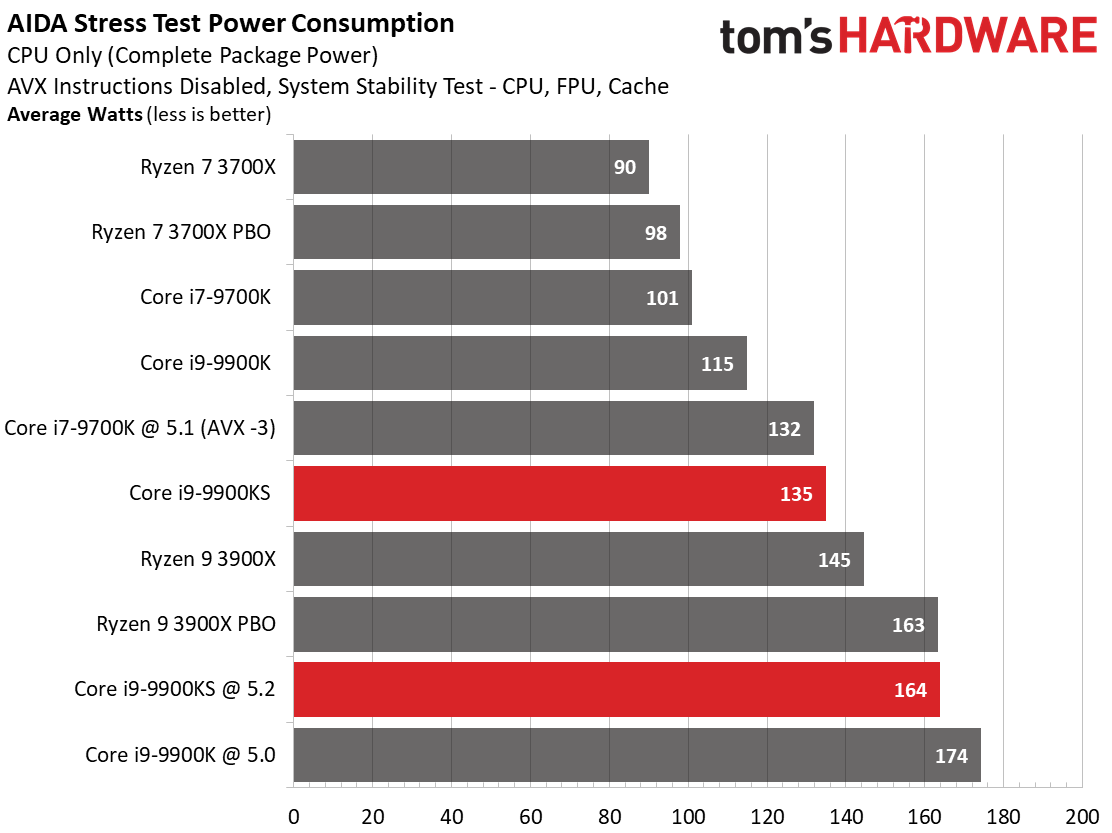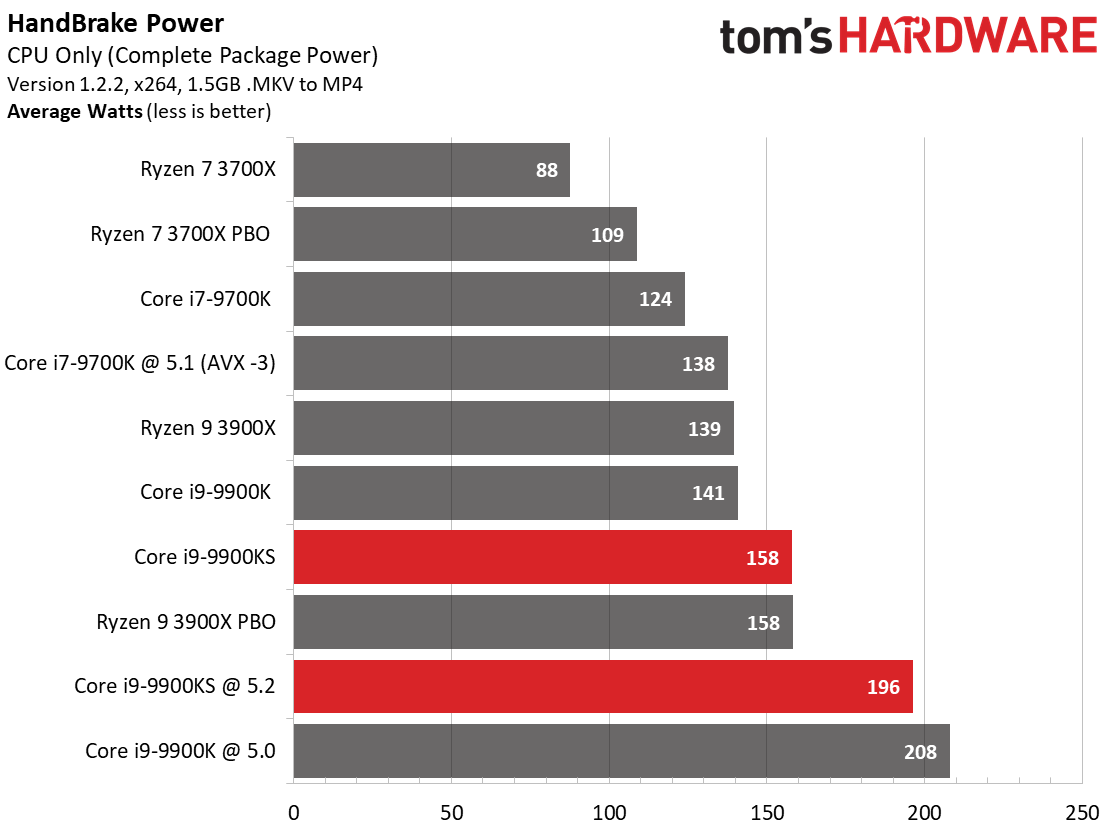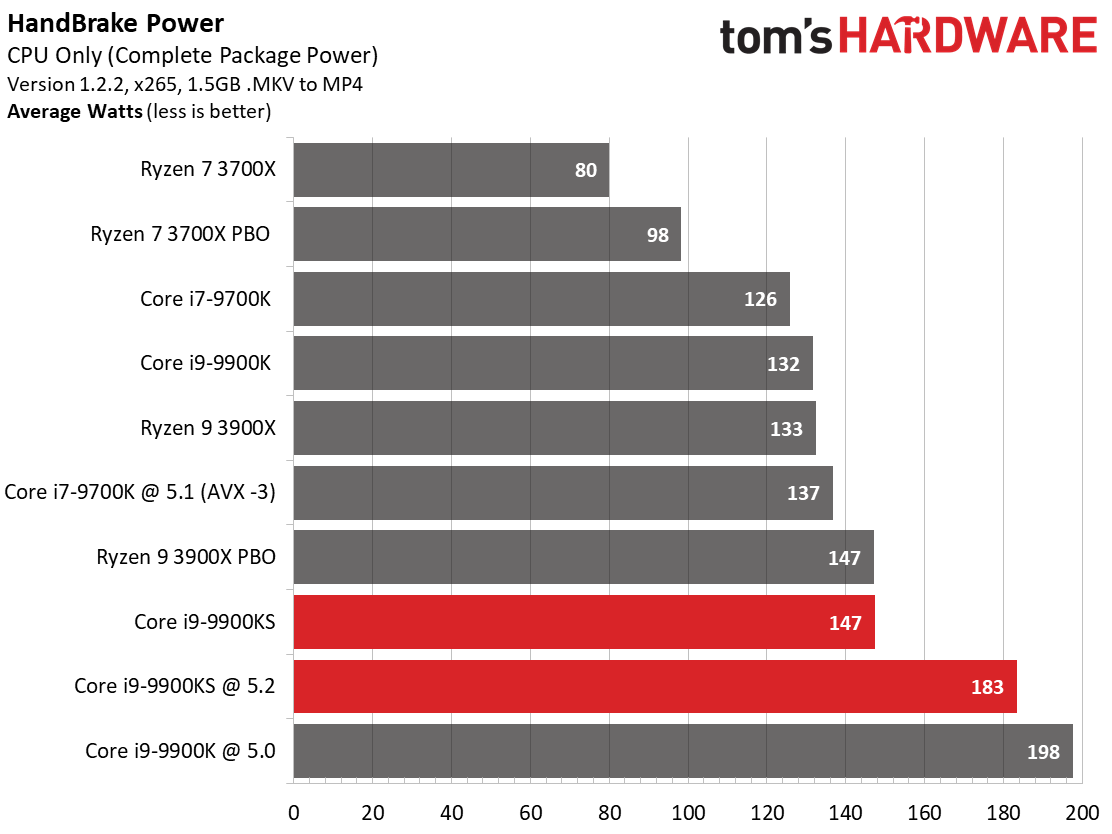In the Core i9-10900's defense, the Ryzen 9 3900X does have a 105W TDP so it has more breathing room.
The Core i9-10900K, which is the flagship Comet Lake-S chip, is rumored to feature a 125W TDP so it would be more fair to compare it to the Ryzen 9 3900X.
What breathing room? Intel grossly under-reports the TDPs of their processors. As has been pointed out, even the "65 watt" 10900 may be drawing around 200 watts under load at its standard boost clocks, significantly more than the 3900X. It's not like anyone will be running this processor locked to it's base clocks, since there would be no point in spending $500 just to underclock the processor to match the performance of other chips costing hundreds of dollars less.
The base clock differences between the Core i7-10700K and Core i7-10700 are so large. Why is the Core i7-10700 not at least 1/3 cheaper? Weird. Intel is going to have to work on pricing.
Base clocks simply don't matter much, unless the processor is overheating, which is generally not the case for a properly functioning desktop system. I'm not even sure why they even bother mentioning them here. Under any sort of load, you will be seeing the boost clocks, and for that, those processors should perform rather close to one another at stock clocks. There is only around a 4% difference in boost clocks between an i7-9700 and a 9700K, for example.
I look forward to seeing how well the 10700K does relative to the 9700K/9900K...; if it is indeed virtual 'wash' gaming-wise, then, ho -hum, they should at least cut prices by $100!
Well, of course they'll be a wash in today's games. The 10700K should effectively perform similar to a 9900K. The main thing you will be gaining at the i7-level will be SMT to better handle heavily-multithreaded workloads, which is the only thing that really differentiates the current i9s from the current i7s. So long as the game has enough threads to work with, which pretty much all of today's games should on an 8-core, 8-thread or 6-core, 12-thread processor, you are unlikely to see any perceptible performance difference between a 9700K and a 10700K, unless perhaps one is streaming their gaming session, where those extra threads might come in handy. And maybe future games a couple years or so down the line may benefit more from them.
On the other hand, since the whole lineup should be getting SMT to better match AMD's offerings, that means the new i5s should actually perform roughly similar to the current i7s. At that level, adding SMT should be more beneficial. So there's your ~$100 price drop.




